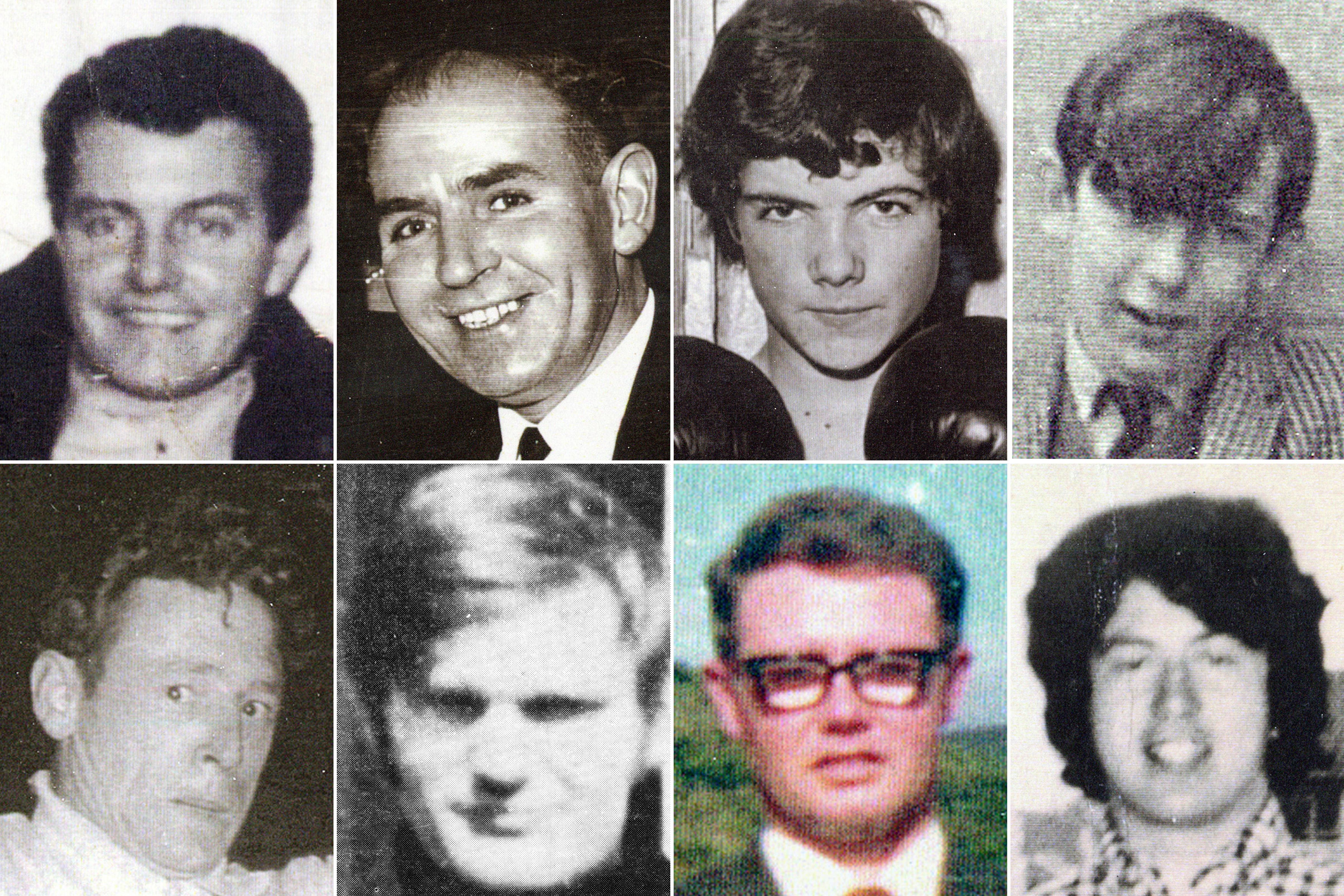Bloody Sunday: British would not apologise as it implied liability – records
The revelation was made in a confidential document detailing a meeting between a British minister and the then Tanaiste.

Your support helps us to tell the story
From reproductive rights to climate change to Big Tech, The Independent is on the ground when the story is developing. Whether it's investigating the financials of Elon Musk's pro-Trump PAC or producing our latest documentary, 'The A Word', which shines a light on the American women fighting for reproductive rights, we know how important it is to parse out the facts from the messaging.
At such a critical moment in US history, we need reporters on the ground. Your donation allows us to keep sending journalists to speak to both sides of the story.
The Independent is trusted by Americans across the entire political spectrum. And unlike many other quality news outlets, we choose not to lock Americans out of our reporting and analysis with paywalls. We believe quality journalism should be available to everyone, paid for by those who can afford it.
Your support makes all the difference.The Secretary of State for Northern Ireland Sir Patrick Mayhew told Dick Spring that the British Government would not apologise over Bloody Sunday, as it would be accepting liability, which “could not be justified”.
According to a confidential document, the comments were made at a meeting between Sir Patrick and Mr Spring in London on February 6 1997.
Sir Patrick also told the then Tanaiste and Irish Government officials that there was “not much prospect” of the Widgery findings being overturned.
The British and Irish delegation met in Lancaster House for a working dinner, lasting for three hours.
The Tanaiste was accompanied by Sean O hUiginn, Ted Barrington, David Donoghue and Colm O Floinn.
Sir Patrick attended the meeting with the Minister of State in the Northern Ireland Office, Michael Ancram, and Quentin Thomas.
The memo reveals that most of the meeting was devoted to a wide-ranging discussion of the prospects for the multi-party negotiations and the intentions of the Republican movement as regards the peace process.
Sir Patrick also opened up a discussion about Bloody Sunday, describing it as “an absolute disaster”.
Nevertheless, he noted that the process of criminal prosecution could be activated in response to convincing new evidence
An Irish official noted that he made the remark “much to the discomfort of Ancram” who suggested that “tragedy” might be a better description.
The note stated that Sir Patrick stood his ground, insisting that his own assessment was the most appropriate.
He suggested that the British Government might not have a problem expressing “profound regret” for what had occurred, but to apologise would be to “accept liability” and this could not be justified on the “available evidence”.
He repeated then prime minister John Major’s assurance that his Government would look at any new evidence that emerged.
Members of the Parachute Regiment shot dead 13 civil rights protesters on the streets of Derry in January 1972.
An inquiry led by Lord Chief Justice Lord Widgery supported the soldiers’ version of events, that they were returning fire, however, bereaved families dismissed the report as a whitewash.
In 2010, a new inquiry into the shooting, led by Lord Saville, found that there was no justification for shooting any of those killed or wounded.
Prime minister David Cameron later issued a public apology, saying the killings were “unjustified and unjustifiable”.
In the meeting in 1997, a year before Tony Blair announced the new inquiry, Mr Spring said that Bloody Sunday was a “very sensitive issue” and that he wanted to see the chapter “closed in a dignified way”, adding that he had no desire to subscribe to a “Provo agenda”.
The confidential note revealed that Mr Spring pointed out that new evidence was emerging and wondered could the British Government not respond to this without establishing a new tribunal.
The Secretary of State accepted the strong emotions that the atrocity continued to provoke, particularly for the people of Derry.
According to the note, he insisted he wanted justice for both sides – the families of the bereaved and the soldiers.
Sir Patrick claimed not to have seen the reported, new evidence, with an Irish official noting did not appear to be overly impressed by what he had heard of it.
“Nevertheless, he noted that the process of criminal prosecution could be activated in response to convincing new evidence,” the Irish official said.
Sir Patrick said he also also examined the application for a judicial review of the Widgery inquiry, saying he was not sure how the court would respond to the “novel initiative”.
He told the Tanaiste and Irish officials that there was not much prospect of Widgery being overturned on the basis of the current application.
Sir Patrick also asked whether it would be enough to “satisfy the families” of the British Government expressed profound regret over the shootings.
The Irish side suggested that the best course would be for the Secretary of State to take up the matter with John Hume, who wold be well placed to advise on this point.
The material can be viewed in the National Archives in file 2021/51/201